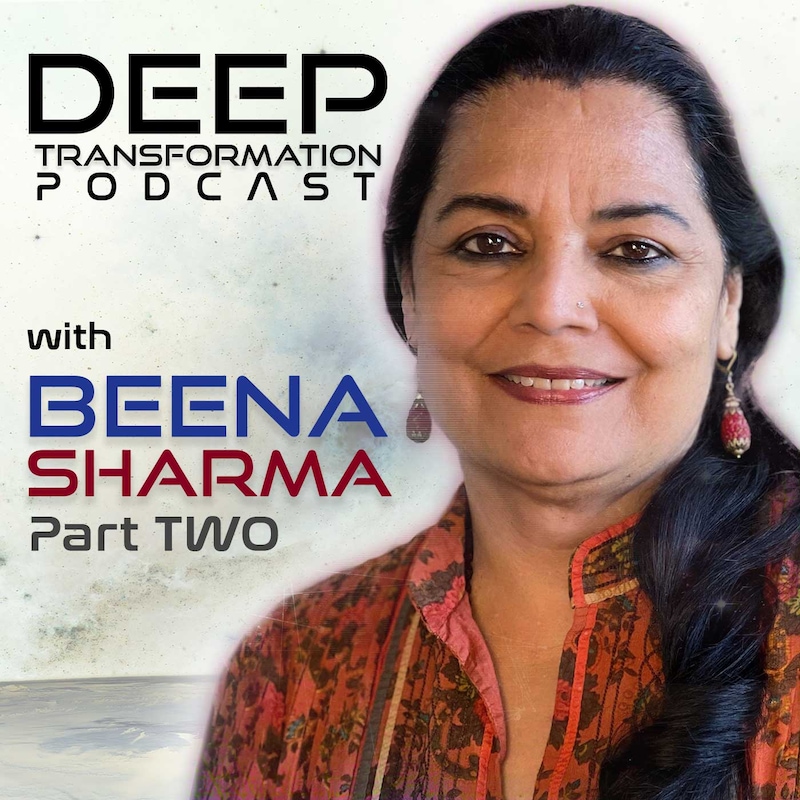Ep. 41 (Part 2 of 3) | Beena Sharma, president of the Vertical Development Academy (VeDA), gives a beautifully cogent explanation of the 8-stage, full spectrum model of adult psychological development, Vertical Development, illuminating us not only to the characteristics of each stage of development, but the implications and ramifications of each stage, the process of human development as a whole, and how this model can help us face our current metacrisis. Beena describes how “each stage is a way of seeing the world and oneself, a constellation of our beliefs and assumptions,” and we discover that our development takes form in patterns of evolving worldviews, a progression of capacities with which we make sense of the world.
On an individual level, Beena asks, “Where is your foot nailed to the floor? Where are parts of you still ahead of you? How can this framework help you make a shift?” And collectively, “What does it mean for the human being to evolve? What makes us think humans at this time are at the end of the evolutionary ladder?” Vertical development focuses on the evolving ego, and interestingly, takes us to the stage where we realize the ego itself is only a construct—and beyond. As well as a brilliant unpacking of the vertical development model, this is a profound, warm-hearted conversation, about human evolution and possibility, the dance of the dual and the nondual, the infinitude of the psyche, and what it means to come home to oneself. Recorded July 13, 2022.
“The earlier the stage, the greater the gift; the later the stage, the greater the promise.”
(For Apple Podcast users, click here to view the complete show notes on the episode page.)
Topics & Time Stamps - Part 2
- In this framework, an arc represents the ego’s process of development, with the self-determining stage being the top of the arc (01:38)
- Self-questioning stage: you realize you are not as independent as you thought—you are conditioned, shaped, and molded by your context (02:30)
- Resolution of the problems in the previous stage come in the new stage (06:41)
- The biggest shift is between the self-determining self and the self-authoring self—and Integral Theory’s mean green meme (07:14)
- Self-actualizing stage, where you realize it’s both all relative and there are also some absolutes, and systems thinking comes online internally and externally (10:37)
- Complexity thinking skills can be taught and learned (13:56)
- Self-actualizing stage continued: looking for and integrating higher wisdom, for “and” as well as either/or thinking (18:45)
- The shadow of the self-actualizing stage (22:11)
- Construct-aware stage: seeing that all the ideas you have are only constructs, abstractions, there is no reality “out there;” the ego itself begins to see it’s only a construct (23:41)
- This stage illuminates 3 things: existentialism, the wisdom traditions’ concept of emptiness and liberation, and the postmodern stage of deconstructionism (28:47)
- The Hindu god Shiva, half masculine/half feminine, is personified yin/yang, where all opposites are integrated, the potential of our human form to be in harmony with both emptiness and form (37:33)
- Transcendent or unitive stage: falling into no boundaries, falling into the now, recognizing we are all one (39:04)
- This particular adult development framework bridges psychological development with spiritual development, where other frameworks do not (40:58)
- This is a “full spectrum perspective” on human development and possibility, as Ken Wilber described (42:09)
- Translation: how do we bring this framework into service? (44:20)
- The psyche is infinite; the fundamental humility of unknowability (46:50)
- Developmental movement within stages and across the arc—people are either entering, consolidating, or transitioning (48:54)
- What does it mean to come home to oneself? (50:29)
- How Byron Katie’s The Work helps us access the construct-aware stage (52:28)
Resources & References - Part 2
- Robert Kegan, The Evolving Self*
- Don Beck & Christopher Cowan, Spiral Dynamics*
- Spiral Dynamics’ Second Tier
- Who Are the 2nd Tier Thinkers with Ken Wilber
- Sri Nisargadatta Maharaj, I Am That*
- T.R.V. Murti, Central Philosophy of Buddhism: A Study of the Madhyamika System*
- Kashmiri Saivism, "Fullness pours into Emptiness; Emptiness pervades Fullness"
- Kabir, a 15th-century Indian mystic poet, composed poetry that evoked a space called nirgun or shunya—something without qualities or boundaries, empty—which challenged listeners to know it and to know themselves
- Ken Wilber, The Religion of Tomorrow*
- Sri Aurobindo, sage of modern India
- Byron Katie’s The Work, Loving What Is: Four Questions That Can Change Your Life*
- Beena Sharma, founder Vertical Development Academy (VeDA): facilitating leadership maturity
* As an Amazon Associate, Deep Transformation earns from qualifying purchases.
---
Beena Sharma currently stewards Vertical Development Academy (VeDA) as its founding president, with a vision to enhance the practice of human development. Beena has a passion around helping individuals and organizations orient themselves to the path of the evolving human being across the various stages of maturity as revealed through empirical research and sound theory. She sees the progressive unfolding of maturity in adults as a process where the narrow, the limited, and the conflicting open to a more comprehensive, a more real, a more complete intuition and perspective—each stage of human maturity a temporary station of a more adequate understanding of the human condition.
Beena is a gifted master coach, consultant, teacher, and thought leader. She has been recognized nationally and internationally for her achievements in successfully conceptualizing, developing, and delivering systemic leadership development initiatives. Beena has led efforts as an executive and consultant for various agencies of the U.S. government and leading private-sector companies in healthcare and other industries in the U.S., U.K., Europe, Russia, Brazil, South Africa, and India. Beena is committed to designing and delivering exceptional learning experiences to build deep capability in individuals and organizations in service of creating a sustainable future for our civilization.
---
Podcast produced by Vanessa Santos and Show Notes by Heidi Mitchell





